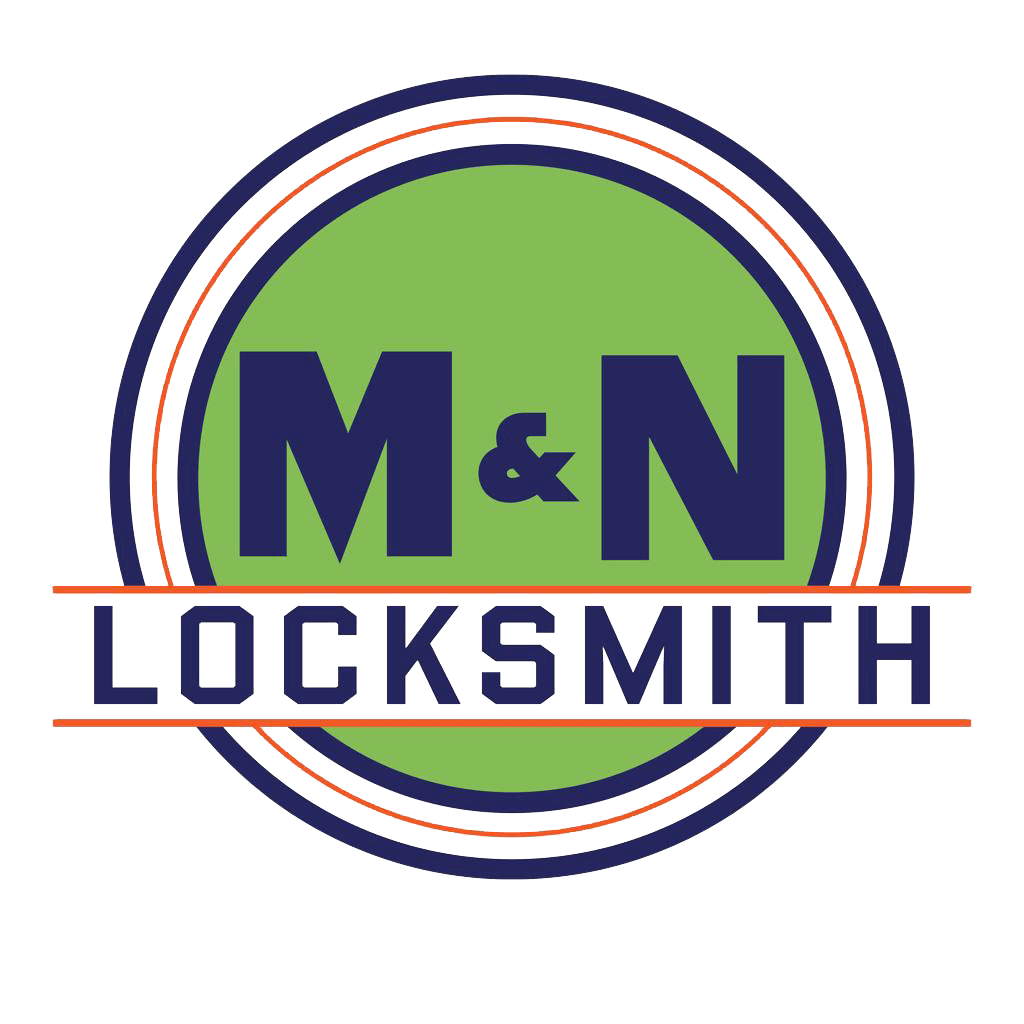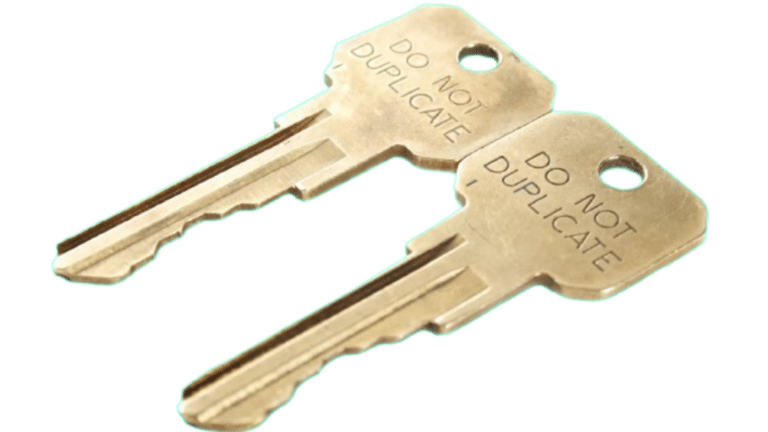When it comes to securing our homes, offices, or vehicles, key duplication plays a crucial role. Having spare keys can provide convenience, peace of mind, and ensure that we are never locked out. But have you ever wondered if there are keys that cannot be copied or duplicated? Keys that offer an extra layer of security, making unauthorized duplication impossible?
In this article, we will explore the concept of non-duplicable keys through the following;
- Importance of Key Duplication
- What Is A Key That Cannot Be Duplicate?
- Types of Keys That Cannot Be Duplicated
- The Limitation of Key Duplication
- Understanding Restricted Key Systems
- The Benefits of Key That Cannot Be Duplicated
The importance of key duplication
Key duplication is an essential service that allows us to have multiple copies of a key. It ensures that we have spare keys readily available in case of emergencies or when we need to provide access to trusted individuals. Whether it’s for our residential or commercial properties, duplicate keys can be a lifesaver. They save us from the hassle and cost of locksmith services, and they provide convenience in situations where we misplace or lose our original keys. Key duplication is a valuable service that helps us maintain control over our access points.
What is a key that cannot be duplicated called?
A key that cannot be duplicated is commonly referred to as a “non-duplicable key” or a “restricted key.” These keys are specifically designed to prevent unauthorized duplication and offer a higher level of security. Non-duplicable keys often have intricate and unique keyway designs, and specialized key blanks, or incorporate advanced technology such as electronic chips or magnetic encoding. By implementing these features, non-duplicable keys provide an extra layer of protection against unauthorized access.
Types of keys that cannot be duplicated
Keys that cannot be duplicated are typically specialized keys that come with certain security measures. Here are some examples:
- Restricted or patented keys: These keys have unique shapes and designs that are patented by their manufacturers. They cannot be easily duplicated without proper authorization.
- High-security keys: These keys often incorporate complex designs and mechanisms that make duplication difficult without the proper equipment and authorization. They are commonly used in sensitive areas such as government facilities, banks, and high-security buildings.
- Electronic keys: Keys that use electronic or digital technology for access control may have encryption or unique identifiers that prevent unauthorized duplication.
- Biometric keys: Keys that rely on biometric data, such as fingerprint or retinal scans, are inherently difficult to duplicate as they are based on the physical characteristics of individuals.
- Master keys: These keys are often used in master key systems to control access to multiple locks within a facility. Master keys themselves are typically restricted and not easily duplicated.
- Custom-designed keys: Keys that are specially designed for a particular lock or system may have unique features that make duplication challenging without specific knowledge or equipment.
It’s important to note that while these keys may be more difficult to duplicate, no key is completely immune to duplication or unauthorized access. However, these specialized keys add layers of security that make duplication more challenging and deter unauthorized copying.
The limitations of key duplication
While key duplication is incredibly useful in many scenarios, it does come with certain limitations. Standard keys can be easily copied by anyone with access to a key-cutting machine. This raises concerns about unauthorized individuals obtaining duplicate keys without our knowledge or consent. Additionally, the key duplication process can compromise security if not handled properly. For these reasons, some situations call for keys that cannot be duplicated, offering an enhanced level of security and control.
Understanding restricted key systems
Restricted key systems are designed to address the limitations of traditional key duplication. These systems incorporate patented key designs and high-security features that make unauthorized duplication nearly impossible. Restricted keys are typically protected by legal restrictions and can only be duplicated by authorized locksmiths or key manufacturers. This ensures that the key holder has complete control over who can duplicate their keys, reducing the risk of unauthorized access.
The benefits of a key that cannot be duplicated
Opting for keys that cannot be duplicated offers several advantages. Firstly, it ensures that only authorized individuals can obtain a copy of the key. This is particularly valuable for commercial properties, where key control is crucial to safeguarding assets, sensitive information, and maintaining the integrity of the premises. Non-duplicable keys also provide peace of mind, knowing that your key cannot be copied without your knowledge or permission. Additionally, these keys deter potential intruders who rely on unauthorized key duplication as a means of gaining access.
How to obtain a key that cannot be duplicated
To obtain a key that cannot be duplicated, you will need to consult a professional locksmith or key manufacturer that specializes in restricted key systems. These professionals have the expertise and equipment required to create non-duplicable keys. When acquiring a non-duplicable key, you will likely need to provide proof of ownership or authorization to ensure that the key is issued to the correct individual. By following the proper procedures and working with trusted professionals, you can enhance the security of your property with keys that cannot be duplicated.
Common misconceptions about keys that cannot be duplicated
There are some common misconceptions surrounding keys that cannot be duplicated. One misconception is that non-duplicable keys are only necessary for high-security facilities or government establishments. While these properties can greatly benefit from non-duplicable keys, they are not the only ones that can benefit. Residential properties, businesses, and individuals who prioritize security and key control can also benefit from non-duplicable keys. Another misconception is that non-duplicable keys are prohibitively expensive. While restricted key systems may require a higher initial investment, the long-term security benefits outweigh the cost.
Types of keys that can be duplicated
Most standard keys can be easily duplicated at a local hardware store or by a locksmith. These keys, commonly used for residential and commercial properties, are relatively simple in design and can be replicated using conventional key-cutting techniques. However, advancements in key technology have led to the development of more sophisticated key systems that offer higher security and restrict unauthorized duplication. These keys require specialized equipment and authorization to be duplicated, ensuring greater control over key access.
Conclusion
In conclusion, the ability to have keys that cannot be duplicated offers an invaluable level of security and peace of mind. By opting for non-duplicable keys, you can maintain control over who has access to your property and reduce the risk of unauthorized duplication. Whether it’s for residential, commercial, or high-security facilities, non-duplicable keys provide an effective solution for enhancing security. If you value key control and want to take your security measures to the next level, consider investing in keys that cannot be duplicated.
Frequently Asked Questions
1. Can I duplicate a non-duplicable key myself?
No, non-duplicable keys require specialized equipment and authorization from authorized locksmiths or key manufacturers. Attempting to duplicate these keys without proper authorization may result in a faulty copy or legal consequences.
2. Are non-duplicable keys completely foolproof?
While non-duplicable keys offer a higher level of security, it is important to note that no security measure is entirely foolproof. However, non-duplicable keys significantly reduce the risk of unauthorized duplication and provide an effective deterrent against unauthorized access.
3. Do I need to replace all my existing keys with non-duplicable keys?
It is only necessary to replace all your existing keys with non-duplicable keys if you require a higher level of security. You can choose to implement non-duplicable keys for specific access points or areas where key control is critical.
4. Can non-duplicable keys be rekeyed or master keyed?
Yes, non-duplicable keys can be rekeyed or master keyed like standard keys. This allows you to change the locks or control access to different areas while still maintaining the non-duplicable feature.
5. Are non-duplicable keys more expensive than standard keys?
Non-duplicable keys may have a higher initial cost due to their specialized design and restricted nature. However, the long-term security benefits and peace of mind they provide outweigh the initial investment.


